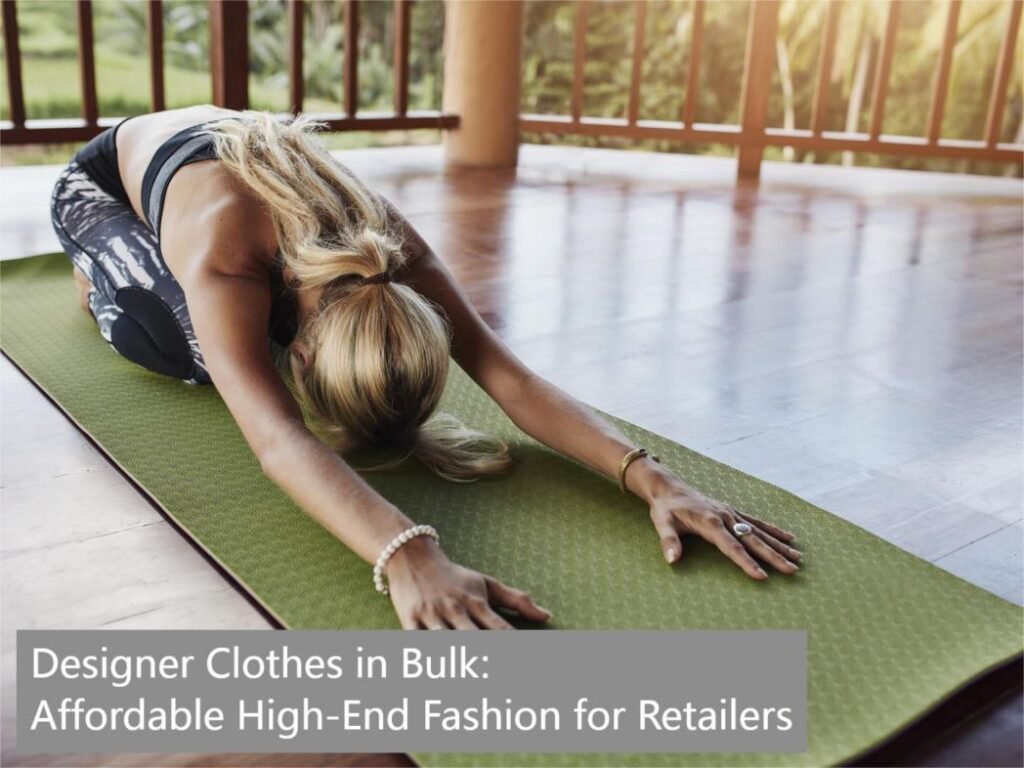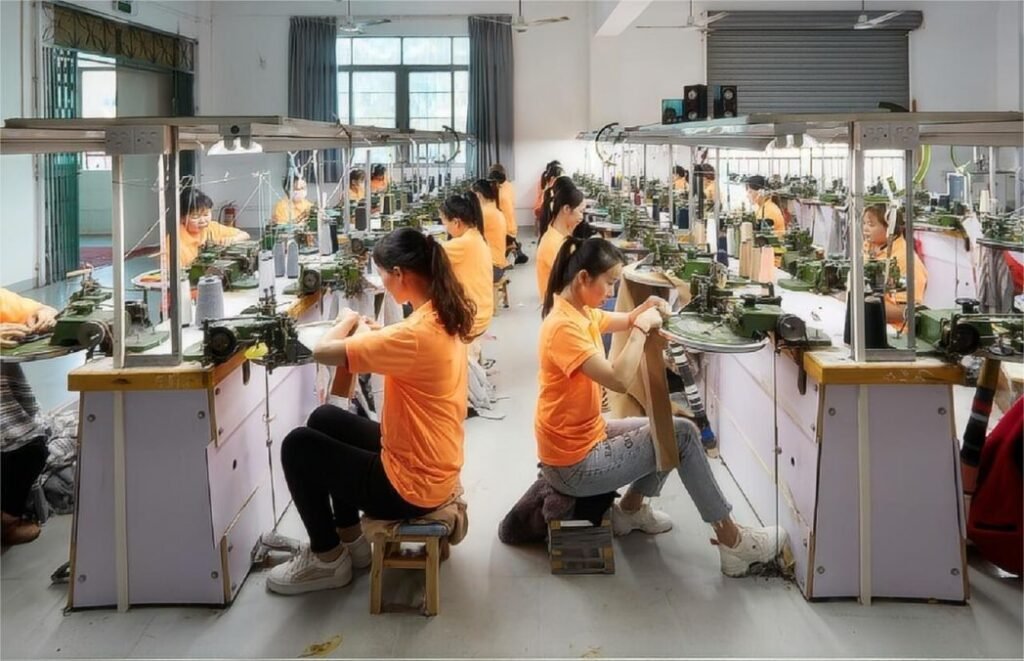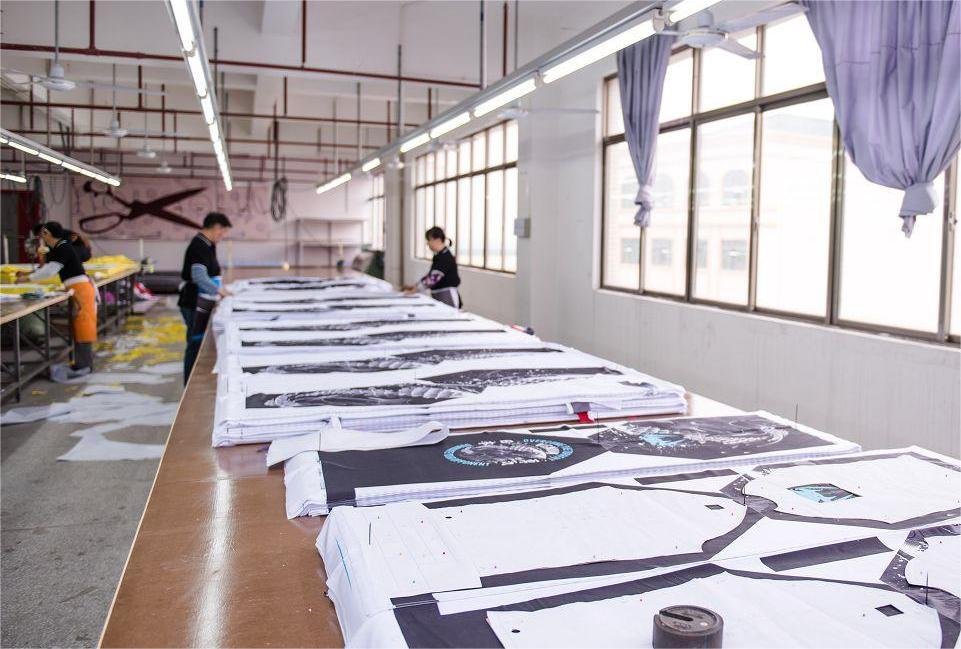No products in the cart.
Custom Yoga Pants
Designer Clothes in Bulk: Affordable High-End Fashion for Retailers
Introduction: The Rise of Designer Clothes in Bulk
In recent years, the demand for designer clothes in bulk has been on the rise. Retailers are increasingly turning to this option to offer their customers affordable high-end fashion. This article will explore the benefits of buying designer clothes in bulk for retailers, the top designer brands offering bulk orders, how to find reliable suppliers, factors to consider when purchasing in bulk, tips for negotiating prices and terms, quality control measures, marketing strategies, the pros and cons of selling designer clothes in bulk, case studies of successful retailers, and future trends in the market.

Benefits of Buying Designer Clothes in Bulk for Retailers
There are several advantages for retailers who choose to buy designer clothes in bulk. Firstly, purchasing in bulk allows retailers to access high-end fashion at significantly lower prices. By buying in large quantities, retailers can negotiate better deals with suppliers, resulting in substantial cost savings. These savings can then be passed on to customers, making designer clothes more affordable and appealing.
Secondly, buying in bulk ensures a consistent supply of popular designer brands. Retailers can stock up on a wide range of styles and sizes, catering to the diverse preferences of their customers. This eliminates the risk of running out of stock and missing out on potential sales. It also allows retailers to stay ahead of the competition by offering the latest trends and designs.
Thirdly, buying designer clothes in bulk provides retailers with the opportunity to establish strong relationships with suppliers. This can lead to exclusive deals, early access to new collections, and personalized support. These partnerships can be invaluable in the highly competitive fashion industry, where having a reliable and trusted supplier can make all the difference.
Top Designer Brands Offering Bulk Orders
Many top designer brands recognize the growing demand for designer clothes in bulk and have started offering this option to retailers. Brands such as Gucci, Prada, Versace, and Balenciaga now provide bulk orders to retailers worldwide. These brands understand the importance of catering to the needs of retailers and are willing to work closely with them to ensure a successful partnership.
How to Find Reliable Suppliers for Designer Clothes in Bulk
Finding reliable suppliers for designer clothes in bulk can be a daunting task. However, there are several strategies that retailers can employ to ensure they find trustworthy partners. Firstly, retailers should conduct thorough research and due diligence on potential suppliers. This includes checking their reputation, reading customer reviews, and verifying their credentials.
Secondly, retailers can attend trade shows and industry events to connect with suppliers directly. These events provide an excellent opportunity to meet face-to-face with suppliers, ask questions, and assess the quality of their products. Building personal relationships with suppliers can help establish trust and ensure a smooth working relationship.
Thirdly, retailers can seek recommendations from other industry professionals or join online forums and communities to gather insights and advice from experienced retailers. These platforms can provide valuable information about reliable suppliers and potential pitfalls to avoid.
Factors to Consider When Purchasing Designer Clothes in Bulk
When purchasing designer clothes in bulk, retailers need to consider several factors to ensure a successful transaction. Firstly, they should carefully assess the quality of the products. High-end fashion is known for its superior craftsmanship and attention to detail. Retailers should inspect samples and request detailed information about the materials used, manufacturing processes, and quality control measures.
Secondly, retailers should consider the target market and customer preferences. Understanding the demographics and fashion preferences of their customers will help retailers select the right designer brands and styles to stock. This will ensure that the purchased inventory aligns with customer demand, reducing the risk of unsold stock.
Thirdly, retailers should evaluate the pricing and terms offered by suppliers. It is essential to compare prices from different suppliers to ensure competitive rates. Additionally, retailers should carefully review the terms and conditions, including payment terms, shipping arrangements, and return policies. Clear communication and transparency are crucial to avoid any misunderstandings or disputes.

Tips for Negotiating Prices and Terms with Bulk Suppliers
Negotiating prices and terms with bulk suppliers can be challenging, but with the right approach, retailers can secure favorable deals. Firstly, retailers should be prepared and knowledgeable about the market value of the products they are purchasing. Researching the average wholesale prices and understanding the supplier’s costs can provide leverage during negotiations.
Secondly, retailers should be willing to negotiate and explore different options. This includes discussing volume discounts, payment terms, and shipping arrangements. Flexibility and open communication can help retailers find mutually beneficial solutions.
Thirdly, retailers should build strong relationships with suppliers. By demonstrating loyalty and commitment, retailers can establish trust and increase their chances of receiving preferential treatment. Regularly communicating with suppliers and providing feedback can also help strengthen the partnership.
Quality Control: Ensuring Authenticity and High Standards
Maintaining quality control is crucial when selling designer clothes in bulk. Retailers must ensure that the products they sell are authentic and meet high standards. Counterfeit designer goods are a significant concern in the fashion industry, and retailers must take steps to protect their reputation and customers.
To ensure authenticity, retailers should only purchase from authorized suppliers or directly from the designer brands themselves. They should request certificates of authenticity and verify the legitimacy of the products. Additionally, retailers can implement quality control measures such as inspecting each item before selling, conducting regular audits, and addressing any customer complaints promptly.
Marketing Strategies for Selling Designer Clothes in Bulk
Marketing plays a vital role in selling designer clothes in bulk. Retailers need to create awareness and generate demand for their products. Firstly, retailers should leverage digital marketing channels such as social media, email marketing, and search engine optimization to reach a wider audience. They can showcase their inventory, highlight the affordability of high-end fashion, and promote any exclusive deals or discounts.
Secondly, retailers can collaborate with influencers and fashion bloggers to create buzz around their products. Influencers can showcase the designer clothes in bulk, share their personal experiences, and provide styling tips. This can help attract attention and drive traffic to the retailer’s website or physical store.
Thirdly, retailers should consider hosting events or pop-up shops to engage with customers directly. These events can provide an opportunity for customers to try on the clothes, receive personalized styling advice, and experience the luxury of high-end fashion. Creating a memorable and immersive shopping experience can help differentiate the retailer from competitors and build customer loyalty.
The Pros and Cons of Selling Designer Clothes in Bulk
While selling designer clothes in bulk offers numerous benefits, there are also some drawbacks that retailers should consider. On the positive side, retailers can enjoy significant cost savings, a consistent supply of popular designer brands, and the opportunity to establish strong relationships with suppliers. They can also attract a wider customer base by offering affordable high-end fashion.
However, there are challenges associated with selling designer clothes in bulk. Firstly, retailers need to invest a significant amount of capital upfront to purchase the inventory. This can be a barrier for small retailers or those with limited financial resources. Secondly, there is a risk of unsold stock if the retailer fails to accurately predict customer demand or if fashion trends change rapidly. This can result in financial losses and inventory management issues.
Case Studies: Successful Retailers Profiting from Designer Clothes in Bulk
Several retailers have successfully capitalized on the trend of selling designer clothes in bulk. One such example is Fashion Forward, a boutique retailer based in New York City. By purchasing designer clothes in bulk, Fashion Forward was able to offer its customers high-end fashion at affordable prices. The store quickly gained a reputation for its extensive selection of designer brands and attracted a loyal customer base.
Another case study is Luxe Couture, an online retailer specializing in luxury fashion. By partnering with top designer brands and purchasing in bulk, Luxe Couture was able to offer its customers a wide range of high-end fashion at competitive prices. The retailer focused on providing exceptional customer service and personalized styling advice, which helped differentiate them from competitors and drive customer loyalty.
Future Trends in the Designer Clothes in Bulk Market
The future of the designer clothes in bulk market looks promising. As consumers continue to seek affordable high-end fashion, the demand for designer clothes in bulk is expected to grow. Retailers can expect to see an increase in the number of designer brands offering bulk orders and more competitive pricing.
Additionally, sustainability and ethical fashion are becoming increasingly important to consumers. Retailers who prioritize eco-friendly practices and offer sustainable designer clothes in bulk are likely to gain a competitive advantage. This includes partnering with brands that prioritize ethical sourcing, use sustainable materials, and implement environmentally friendly manufacturing processes.

Conclusion: Unlocking the Potential of Affordable High-End Fashion for Retailers
Designer clothes in bulk offer retailers the opportunity to provide their customers with affordable high-end fashion. By purchasing in bulk, retailers can access top designer brands at significantly lower prices, ensuring a consistent supply of popular styles and sizes. Building strong relationships with reliable suppliers is crucial for success in this market.
Retailers should carefully consider factors such as quality control, pricing, and customer preferences when purchasing designer clothes in bulk. Negotiating prices and terms with suppliers requires preparation, flexibility, and open communication. Implementing effective marketing strategies can help retailers create awareness and generate demand for their products.
While there are challenges associated with selling designer clothes in bulk, successful retailers have demonstrated that it is possible to profit from this business model. By understanding the market trends, building strong partnerships, and prioritizing customer satisfaction, retailers can unlock the potential of affordable high-end fashion and thrive in the competitive fashion industry.
